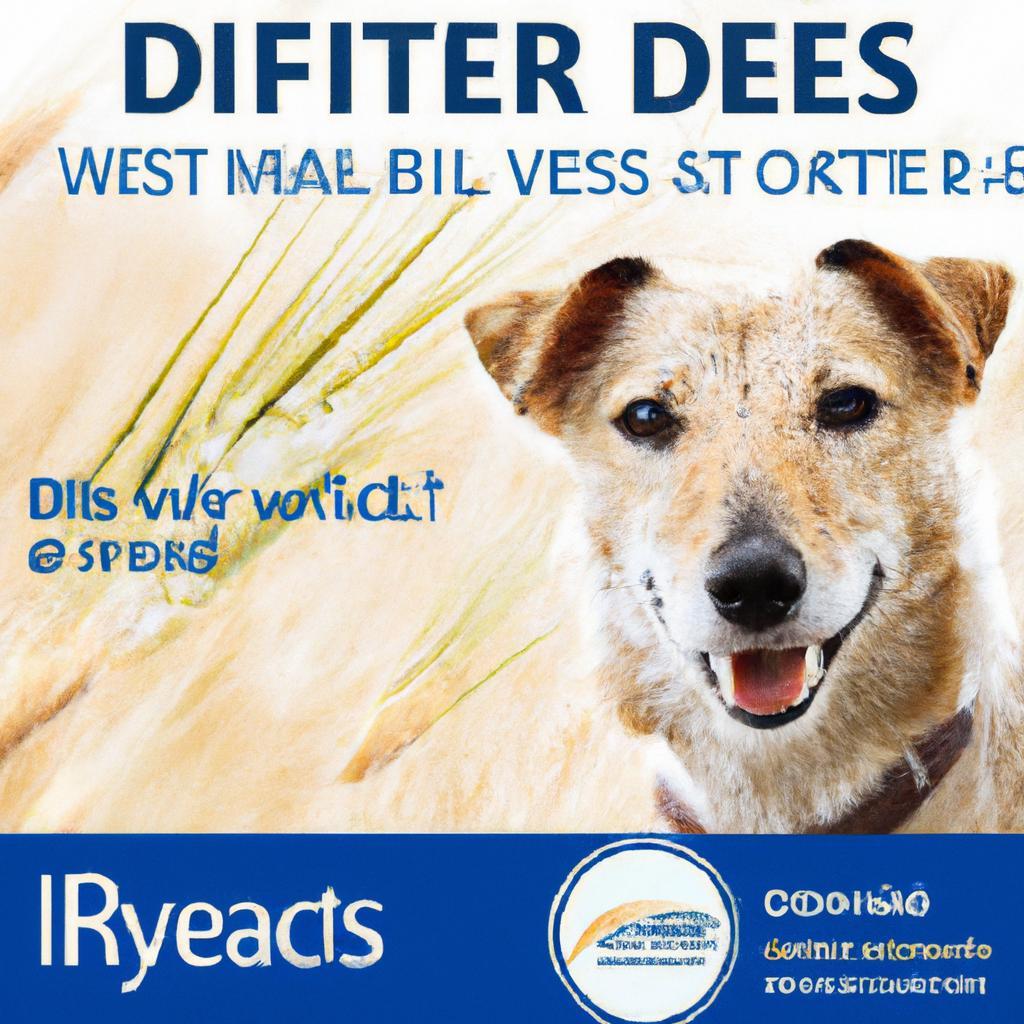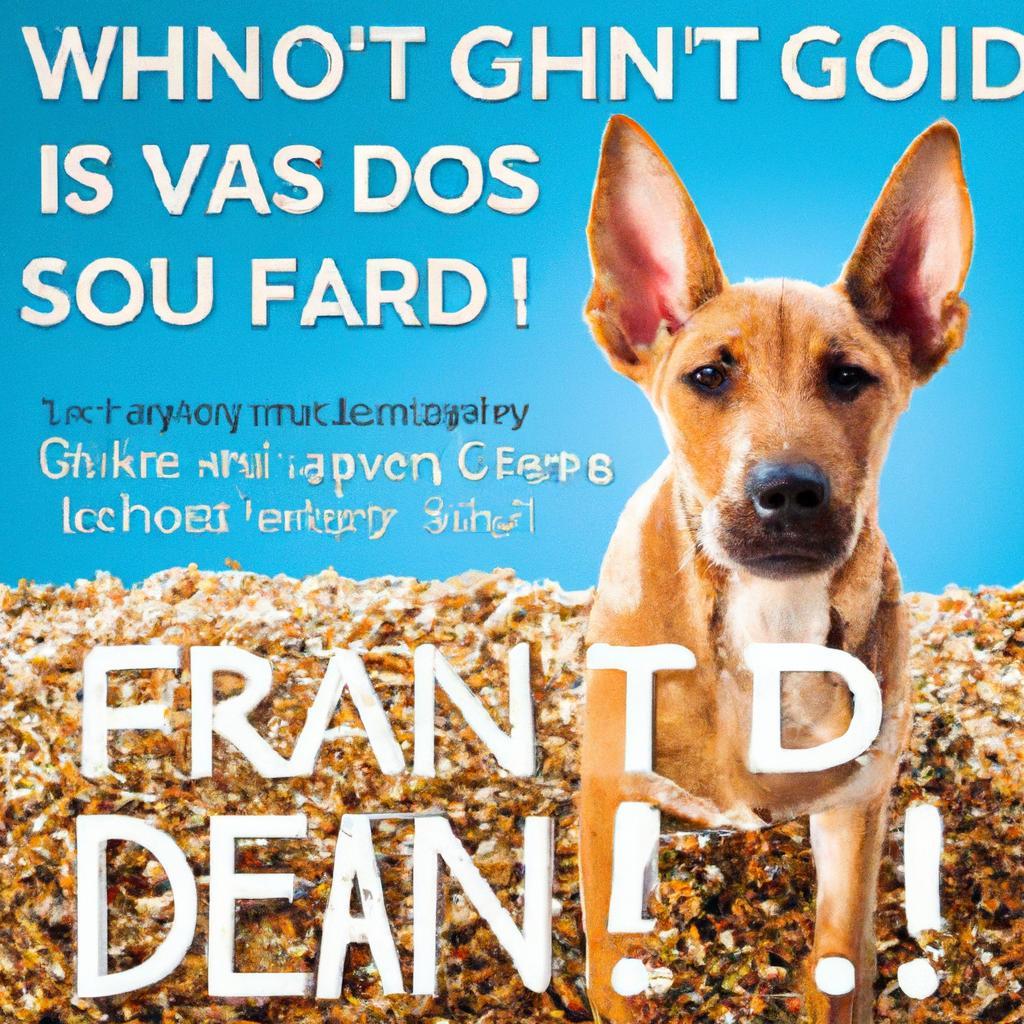Once, a loving dog owner named Sarah switched her pup, Max, to a grain-free diet, believing it was the healthiest choice. At first, Max seemed energetic, but soon he developed digestive issues and lethargy. A visit to the vet revealed that the grain-free diet lacked essential nutrients and was linked to heart problems in dogs. Sarah learned that grains, like brown rice and oats, can provide vital fiber and nutrients. Now, she feeds Max a balanced diet, ensuring his health and happiness. Don’t risk your dog’s well-being—choose wisely!
Contents
- The Nutritional Balance: Understanding the Role of Grains in Canine Diets
- Potential Health Risks: The Link Between Grain-Free Diets and Heart Disease
- Cost-Effective Alternatives: Choosing Quality Ingredients Without Going Grain-Free
- Expert Recommendations: Consulting Veterinarians for Tailored Dietary Choices
- Q&A
The Nutritional Balance: Understanding the Role of Grains in Canine Diets
When considering the optimal diet for our canine companions, it’s essential to recognize the significant role that grains can play in their overall health. Contrary to popular belief, grains are not merely fillers; they are a source of vital nutrients that contribute to a balanced diet. Whole grains, such as brown rice, oats, and barley, provide essential carbohydrates that serve as a primary energy source, helping to fuel your dog’s daily activities and maintain a healthy weight.
In addition to energy, grains offer a variety of important vitamins and minerals. For instance, they are rich in B vitamins, which are crucial for metabolic processes and maintaining a healthy nervous system. Furthermore, grains contain minerals like iron and magnesium, which support various bodily functions, including muscle and nerve function. By incorporating grains into your dog’s diet, you ensure they receive a well-rounded nutritional profile that promotes overall well-being.
Another key benefit of grains is their role in digestive health. Many grains are high in dietary fiber, which aids in maintaining a healthy digestive system. Fiber helps regulate bowel movements, prevents constipation, and can even assist in weight management by promoting a feeling of fullness. This is particularly important for dogs that may be prone to obesity or digestive issues. By including grains in their diet, you can help support their gastrointestinal health and enhance nutrient absorption.
it’s important to consider the potential consequences of a grain-free diet. While some dogs may have specific allergies or sensitivities, eliminating grains entirely can lead to nutritional deficiencies. Many grain-free diets rely heavily on alternative protein sources, which may not provide the same balance of nutrients found in a diet that includes grains. By choosing a balanced approach that incorporates grains, you can ensure your dog receives all the essential nutrients they need to thrive.
Potential Health Risks: The Link Between Grain-Free Diets and Heart Disease
Recent studies have raised concerns about the potential health risks associated with grain-free diets for dogs, particularly regarding heart health. While many pet owners choose grain-free options believing they are healthier, emerging evidence suggests that these diets may be linked to an increased risk of dilated cardiomyopathy (DCM), a serious heart condition. This connection has prompted veterinarians and pet nutritionists to urge caution when considering grain-free formulations.
One of the primary issues with grain-free diets is their reliance on alternative carbohydrate sources, such as peas, lentils, and potatoes. These ingredients, while nutritious, can lead to an imbalance in essential nutrients. Dogs require a balanced diet that includes adequate levels of certain amino acids, particularly taurine, which is crucial for heart health. Grain-free diets often lack sufficient taurine, potentially contributing to the development of heart disease in susceptible breeds.
Moreover, the high levels of certain legumes and potatoes in these diets can lead to excessive carbohydrate intake, which may not only affect a dog’s weight but also its overall metabolic health. Obesity is a known risk factor for various health issues, including heart disease. By opting for grain-inclusive diets, pet owners can ensure their dogs receive a more balanced nutrient profile, supporting both their heart and overall well-being.
It is essential for dog owners to consult with their veterinarians when considering dietary changes. A professional can provide guidance on the best nutritional choices tailored to a dog’s specific needs, taking into account factors such as breed, age, and health status. By prioritizing a balanced diet that includes grains, pet owners can help safeguard their furry companions against potential health risks, ensuring they lead long, healthy lives.
Cost-Effective Alternatives: Choosing Quality Ingredients Without Going Grain-Free
When considering your dog’s diet, it’s essential to focus on quality ingredients that provide the necessary nutrients without resorting to grain-free options. Many pet owners are unaware that grains can be a valuable source of energy and essential nutrients for dogs. Instead of eliminating grains entirely, look for high-quality, whole grains that can enhance your dog’s overall health.
Opt for ingredients such as **brown rice**, **oats**, and **quinoa**. These grains are not only digestible but also rich in fiber, which aids in digestion and helps maintain a healthy weight. Incorporating these grains into your dog’s diet can provide a balanced source of carbohydrates, ensuring they have the energy needed for their daily activities without the risk of nutritional deficiencies often associated with grain-free diets.
Additionally, consider protein sources that complement grain-based diets. Ingredients like **chicken**, **fish**, and **lamb** offer high-quality protein while being easily digestible. When combined with whole grains, these proteins can create a well-rounded meal that supports muscle development and overall vitality. Look for dog food brands that prioritize these ingredients, ensuring that your furry friend receives the best nutrition possible.
don’t overlook the importance of **fruits and vegetables** in your dog’s diet. Ingredients such as **sweet potatoes**, **carrots**, and **blueberries** provide essential vitamins and antioxidants that contribute to your dog’s immune health. By choosing a diet that includes these nutrient-dense foods alongside quality grains, you can ensure your dog thrives without the need for grain-free alternatives, all while being cost-effective and beneficial for their long-term health.
Expert Recommendations: Consulting Veterinarians for Tailored Dietary Choices
When considering your dog’s diet, it’s essential to consult with a veterinarian who can provide expert insights tailored to your pet’s specific needs. Veterinarians possess a wealth of knowledge about canine nutrition and can help you navigate the complexities of dietary choices, especially when it comes to grain-free options. They can assess your dog’s health, lifestyle, and any underlying conditions that may influence their dietary requirements.
Many pet owners may be drawn to grain-free diets due to popular trends or misconceptions about grains being harmful. However, a veterinarian can clarify that grains can be a valuable source of essential nutrients, including vitamins, minerals, and fiber. By working with a professional, you can ensure that your dog’s diet is balanced and includes all necessary components for optimal health.
Moreover, veterinarians can help identify any potential food allergies or sensitivities your dog may have. Instead of jumping to grain-free options, a thorough evaluation can reveal whether grains are indeed the culprit or if other ingredients are causing issues. This tailored approach not only prevents unnecessary dietary restrictions but also promotes a healthier, more enjoyable eating experience for your pet.
Ultimately, the guidance of a veterinarian can lead to informed decisions that enhance your dog’s overall well-being. By prioritizing professional advice, you can avoid the pitfalls of trendy diets and focus on providing a nutritionally complete diet that supports your dog’s health. Remember, a personalized dietary plan crafted with the help of a veterinarian is the best way to ensure your furry friend thrives.
Q&A
-
Is grain-free dog food healthier for my dog?
Not necessarily. While some dogs may have specific grain allergies, most dogs can digest grains without any issues. In fact, grains like brown rice and oats can provide essential nutrients and fiber that contribute to overall health.
-
Can grain-free diets lead to nutritional deficiencies?
Yes, grain-free diets can sometimes lack important nutrients. Many grain-free dog foods rely heavily on peas and potatoes, which may not provide a balanced diet. It’s crucial to ensure your dog receives all necessary vitamins and minerals for optimal health.
-
Are there any health risks associated with grain-free diets?
Recent studies have linked grain-free diets to an increased risk of canine dilated cardiomyopathy (DCM), a serious heart condition. This risk is particularly concerning for certain breeds, making it essential to consult your veterinarian before making dietary changes.
-
What should I consider when choosing dog food?
Focus on a balanced diet that meets your dog’s specific needs. Look for high-quality ingredients, including grains, and consult with your veterinarian to determine the best food for your dog’s health, age, and activity level.
while grain-free diets may seem appealing, they can pose significant health risks for your dog. Prioritize your pet’s well-being by choosing balanced, vet-recommended nutrition that supports their long-term health and vitality.

大家好,我是彼得潘,專業的手法身體治療師。我喜歡探索和研究各種主題,並透過與人工智慧的合作分享專業、實用、有趣的文章。我們定期進行人工審核,以確保內容的準確性。如果您發現文章中有任何不準確的地方,請隨時與我們聯繫,我們會及時糾正。您可以透過 [email protected] 與我們聯繫。



